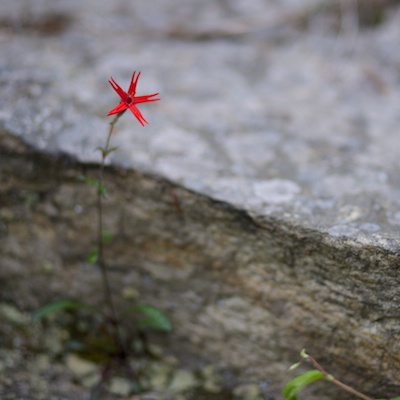by Michael Mamas | Wednesday, July 9, 2014 | Clarifying Confusion, Vedic Arts |
 I was asked the following:
I was asked the following:
Is it good for us to know our future (by means of Jyotish shastra) horoscope? If yes, what is the point in knowing the future when everything is pre-determined by Karma. Won’t an Individual be upset if astrology predicts he will not live after a certain period (in near future).
To which I respond:
Jyotish is a map of your karma. At the depth of your being (the level of the Transcendent, the Divine) you are beyond karma. When you act from that level, you are infinitely free. Yet jyotish does always give a forecast of the upcoming ‘weather’ on the surface of life. For example, it is good to know if it is going to rain, so you can carry an umbrella. Fight your karma with everything you have! The best way to fight it is to evolve. Proper meditation is the most powerful tool. Learn the Surya Meditation on this website and then learn the Surya Ram meditation. It is the best.
Karma will certainly play out, but it can be taken to a different level. For example, karma may be that an accident will occur, but as you evolve, the accident will (instead of being major) be something as simple as stubbing your toe. Of course, visiting the temple, havans, pujas, etc. help with this. The question of free will versus predetermination is something I discuss in length in my lectures and writings.
Generally speaking, Westerners think they have more free will than they do. Easterners think they have less free will than they do. As you evolve, you come to know that you and God are one. At that point, your will and God’s will are one. Then there is no question of free will versus predetermination. God’s will comes in two forms: 1) the laws of karma governing this world of God’s creation and 2) infinite freedom. So, for the enlightened, free will and predetermination are the same thing. There is no difference.
In the state of enlightenment, you have no karma. However, you have entered the world of karma, generally out of compassion for the world. What is perceived to be your karma, is the world’s karma revolving around you and your life… much as the planets revolve around the sun.
One final point: Many think of karma as something outside of themselves that affects them. That is not the complete truth. Most of your karma is between your ears and in your heart. Most of your karma comes in the form of what you think and how you feel. Thusly, you create your own world.
© Michael Mamas. All rights reserved.
by Michael Mamas | Thursday, July 3, 2014 | Clarifying Confusion |
This is a nice overview of Hinduism. Of course, in only 23 minutes, much could not be covered. I could not help wishing some things were explained, for example, Vedic cognition. However, there is so much to say that it could not possibly all be covered.
I enjoyed it and believe that you will too!
© Michael Mamas. All rights reserved.
by Michael Mamas | Friday, June 13, 2014 | Clarifying Confusion, The Veda |
 I was asked questions along the lines of:
I was asked questions along the lines of:
Q: I heard someone at Mount Soma say that this is a Vedic center and has nothing to do with Hinduism, and the two have no connection. I feel that is false. Would you explain this?
To which I respond:
A: I essentially agree with you. It boils down to definition. The Veda is Nature. All religions relate to Nature with varying degrees of clarity. I like to say that when the Master speaks, it immediately ceases to be what the Master said and becomes what the listener heard, and therein lies the birth of religion… echoes of Truth perceived to be Truth. Adi Shankara said the knowledge must be purified generation after generation.
Knowledge, real KNOWLEDGE is not contained in books. It is contained in the awareness of the Enlightened… the Seers. Religions… all religions… are only echoes of Truth. When the subtlety is lost, a great deal is lost… like a musical instrument out of tune. It is the task of every generation to retune the instrument. The closer you are to Truth, the more powerful you become. The more powerful you are, the greater the damage that can be done. If you are going to run off the road, better to do it in a child’s wagon than in a Porsche. See? It is gratifying that even the Hindu community is rising up in response to my words in agreement that the superstition and distortions of Truth must be purified out.
Personally, I would not say that Mount Soma has nothing to do with Hinduism or any other religion for that matter. It has everything to do with the essence of every religion. The similarities with Hinduism are obvious and need not even be stated because they are so obvious. However, as with many things, the subtle difference makes all the difference. So, it is extremely important to be very attentive to the subtle difference and not allow things to get blurred. As I say, a cell phone must be built exactly right to work. Rearrange one diode or transistor and it does not work properly. When principles of Vedic technology are discarded as old fashioned or unnecessary, it can compromise everything.
Q: To the best of my understanding, Vedic is based on Vedas alone and it later evolved into what is now called Hinduism, which is what’s known as the “Upanishads.” Mahabharata (Bhagavad Gita which is part of the Mahabharata) is not part of the 4 Vedas, as it came much later. Please talk about this, if you would.
A: The Veda is eternal, regardless of when a particular aspect of it was cognized. The structure of the Veda is a profoundly beautiful topic. I intend someday to offer a course on that… what the Ramayana, Mahabharata, Upanishads, Mantras, Brahmanas, Upangas, Itihasas, Puranas, etc. are. But right now, I am primarily focused on conveying the basics to the world.
© Michael Mamas. All rights reserved.
by Michael Mamas | Monday, September 2, 2013 | Clarifying Confusion, Spiritual Evolution, Vedic Science |
 There is so much to say about the following comment I received. Really, it is far too much to address in a blog, but I will do my best to say it in a nutshell here.
There is so much to say about the following comment I received. Really, it is far too much to address in a blog, but I will do my best to say it in a nutshell here.
You can study the Veda (in fact, all of life) from different perspectives. One would be that you already know exactly what Lord Krishna means by fearlessness, Atman, controlling the five senses, Advaita, Abhaya hastha, etc. In so doing, you interpret His words on your own terms and from you own level of evolution. Another perspective would be that you cannot possibly know what he means until you have attained the highest level of consciousness. In fact, the primary purpose of studying the Veda, meditation, etc. is the facilitation of your evolution in that direction. In so doing, you open the door to advancing your understanding. This is why I say that your growth is not so much about learning new facts as it is about attaining a deeper understanding of the facts you already know. The facts below are lovely, provided they are reflected upon to see deeper than you currently can see. If you assume you can read Lord Krishna’s words and know what he means, you freeze it and thereby you freeze your own growth and evolution. See?
Perhaps the greatest calamity of spirituality, and all religions, is that people think they understand what is being offered by the Masters. They believe they understand it when they do not. As I am fond of saying, “When the Master speaks, it immediately ceases to be what the Master said and becomes what the listener heard.” If we are to bring out the Knowledge in its purity, we must remain steadfast, unwavering on this point. As I have also said, “An intellectual understanding of spirituality is a good first step, all too often mistaken for the goal.”
As an exercise, I invite you to reflect on the terms and concepts in the comment and see if you can open the door to deeper understandings of what each term may mean. As an aid to this, you may want to reread my blog, “Fear of Death,” which I posted a few days ago. I can help you to look deeper, but only if you are willing and open to doing so.
The comment follows:
I can’t resist sharing some thoughts about fear (bhaya). It was just yesterday morning I woke up contemplating on Abhaya meaning fearlessness. And I open the blog to find this topic. Lord Krishna talked a great deal about fearlessness (Abhayam) at the beginning of His discourse Gita when Arjuna gets disheartened by the fear of fighting the Mahabharata war against his own kith and kin and for the fear of losing them. Lord Krishna described fearlessness (abhayam) as the first quality among the twenty-six good qualities one should possess. Lord Krishna asserts that to understand spiritual knowledge, one should be fearless.
The Abhaya hastha (hand) of Hindu gods and goddesses (an open palm with fingers pointing upwards) is often misinterpreted as the blessing hand. When one begins to look inward (this can be achieved only through unwavering meditation), one would realize the atman (soul) is one with God. This oneness is called Advaita (no duality). You are God and God is you as atman. When one is considered enlightened when she/he is able to apply and practice advaita principle to all the living beings around them. Until such time, we are believed to be following dvaita (duality); we are different from each other. Hence we fear danger, harm, and threat of death from others.
Since it is believed that the soul is eternal, it has this knowledge of Advaita. So, one does not fear one’s own self. However, we perceive fear of bodily harm, losing people or belongings, or death from others around us. If there is no duality where is the source or cause for fear? Devotee Prahlad demonstrated fearlessness as he visualized Narayana in every life form.
From philosophical perspective, five fingers in abhaya hastha denote, controlling of five senses to experience oneness with God as denoted by the fingers pointing upward. In nutshell, the entire philosophy of Advaita is given to mankind through Abhaya hastha.
“When fear is associated with every sensory pleasure you experience, where is the happiness? Those who surrender to God will become fearless and detached and enjoy the ultimate bliss. Those who have realized God understand atma jnana and become fearless. Fearless people are not afraid of death also. Swami Vivekananda was known to be a fearless person.” – Referenced from Sree.
© Michael Mamas. All rights reserved.
by Michael Mamas | Tuesday, August 27, 2013 | Clarifying Confusion, Spiritual Evolution, The Veda |
 The following is a very beautiful comment to the “What is Reality?” blog and very true. I believe that the word, Hindu, was created by the British? It meant followers of Indu! This is just something I learned years ago and can not document it. Of course, there are many philosophies spinning around The Veda. Though different aspects of Veda are called philosophies, they are better thought of as ‘eternal principles’ as stated in the comment. Veda is nature. The mechanics of nature are understood through study of the Veda. The fundamental basis of nature as viewed through western science is the unified field. As in the comment below, it is Oneness, the principle of “advaitha”, non-duality.
The following is a very beautiful comment to the “What is Reality?” blog and very true. I believe that the word, Hindu, was created by the British? It meant followers of Indu! This is just something I learned years ago and can not document it. Of course, there are many philosophies spinning around The Veda. Though different aspects of Veda are called philosophies, they are better thought of as ‘eternal principles’ as stated in the comment. Veda is nature. The mechanics of nature are understood through study of the Veda. The fundamental basis of nature as viewed through western science is the unified field. As in the comment below, it is Oneness, the principle of “advaitha”, non-duality.
I would add that the principle is not understood through study alone. It must be embodied. It must be experienced. This speaks of a level of Unity Consciousness. Not an attitude or belief system but a level of consciousness… enlightenment. Of course, to study it is of great value and facilitates the path to enlightenment… proper meditation also being highly important. Also the word ‘reality’ is often used loosely. I attempted to give some sense of the deeper meaning in the ‘What is Reality’ blog.
Sree, I enjoyed this comment very much. It would be a pleasure to meet you at Mount Soma some day.
Sree’s comment follows:
The word “Hinduism” and “Hindu Philosophy” are wrongly used by many millions in Bharath (India) and throughout the rest of the world.. There is no such word in ancient Indian scriptures. Hindu has no meaning and it does not belong to any of the Indian languages. First of all, Bharath has no religion (reunite) and there is a very good reason for that. We have eternal principles that one must follow. The most important one is “advaitha” or one-ness. In other words, there is no duality in this universe. Once this concept is understood, you understand the reality.
© Michael Mamas. All rights reserved.


 I was asked questions along the lines of:
I was asked questions along the lines of: There is so much to say about the following comment I received. Really, it is far too much to address in a blog, but I will do my best to say it in a nutshell here.
There is so much to say about the following comment I received. Really, it is far too much to address in a blog, but I will do my best to say it in a nutshell here. The following is a very beautiful comment to the “What is Reality?” blog and very true. I believe that the word, Hindu, was created by the British? It meant followers of Indu! This is just something I learned years ago and can not document it. Of course, there are many philosophies spinning around The Veda. Though different aspects of Veda are called philosophies, they are better thought of as ‘eternal principles’ as stated in the comment. Veda is nature. The mechanics of nature are understood through study of the Veda. The fundamental basis of nature as viewed through western science is the unified field. As in the comment below, it is Oneness, the principle of “advaitha”, non-duality.
The following is a very beautiful comment to the “What is Reality?” blog and very true. I believe that the word, Hindu, was created by the British? It meant followers of Indu! This is just something I learned years ago and can not document it. Of course, there are many philosophies spinning around The Veda. Though different aspects of Veda are called philosophies, they are better thought of as ‘eternal principles’ as stated in the comment. Veda is nature. The mechanics of nature are understood through study of the Veda. The fundamental basis of nature as viewed through western science is the unified field. As in the comment below, it is Oneness, the principle of “advaitha”, non-duality.